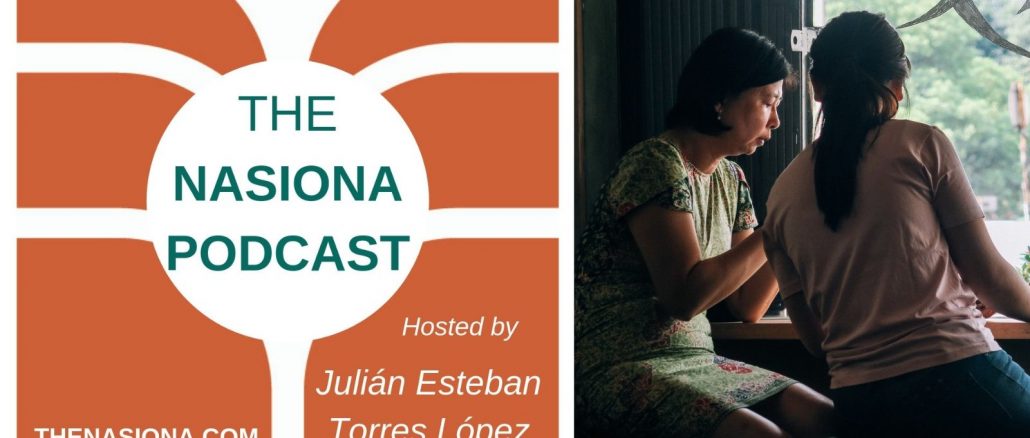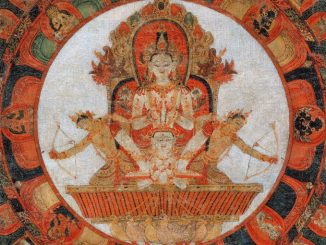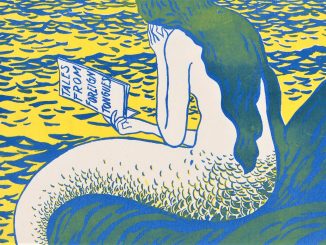
In the words of our Managing Editor and Producer, Aïcha Martine Thiam:
“Who am I? Who will I become?
“This is what we think we are asking ourselves, with every thought accorded to our mothers, with every quarrel fielded with them, with every loving instance we share, with every quiet moment of dissociation. Our mothers are our carbon copies, and every one of their acts and decisions come back to haunt us, often leading us to similar spaces, or else steering us away from what we hope to avoid.
“Who am I? Who will I become? The actual questions underneath those questions are slightly different, although no less profound: Who were you? Who did you become?
“Because indeed, we daughters often forget that we’ve only known our mothers for part of their lives. First and foremost, they were women, lovers, friends, breakers of hearts, daughters, addicts, sisters, survivors, aunts, teachers, flawed girls, artists, dreamers, an entire existence nestled in their hearts before we were ever thought of. But we are so used to perceiving them as our mothers that we tend to forget that: and that is where the mystery sets in.
“This mystery either turns to reverence in our eyes, or else it sours into resentment. The bond between mothers and daughters, for better or for worse, is symbiotic: they are, in many ways, the closest things to us. We think we know our mothers, on an almost organic level, would recognize them anywhere — only to look back and realize that we didn’t, in fact, understand them at all.
“In these next stories, four daughters lose and find their mothers, engage and disengage with them, learn and unlearn who these women are and who they were before they came along. These daughters, intentionally and unintentionally, look for meaning and identity in the women who gave them birth; because whether we like or barely tolerate them, whether we love or reject them entirely, whether they put us together fragment by careful fragment, or whether they undo us with the tug of an errant string, who they were tells us everything about who we will become.
“And so we keep prying underneath that mystery, hoping that it will make our own puzzles click into place, eventually.”
Act 1: “Embracing the Subjective,” by Susanna Barlow and read by Lannie Stabile. Published in The Nasiona, 29 September 2018.
Susanna Barlow does what is most difficult for writers: namely, she lets go of the certainty of truth. By recounting her complicated childhood and fundamentalist upbringing (along with the deception it necessitated), she nonetheless manages to ground herself in another form of authenticity.
Act 2: “Swallow,” written and read by Emma Faesi Hudelson. Published in The Nasiona, 29 December 2018.
Emma Faesi Hudelson takes us to a seminal day in her life: an afternoon of teenage drunkenness collapses into chaos, and her mother’s ensuing attitude to it changes the dynamic of their bond. This account is a haunting glimpse into the boundaries we test with our mothers and, conversely, into what our mothers inadvertently let us get away with. The consequences of their reaction—or lack thereof—often determine the way we bring them into the fold of our trauma going forward. It also paves the way for how we appraise the mistakes we made, the ones currently unfurling, and the ones to come.
Act 3: “Finding Jean Palmer,” by Hannah Huff and read by Anuja Ghimire. Published in The Nasiona, 7 February 2019.
Generations of mothers and daughters collide in this next piece, when Hannah Huff and her mother undertake a journey to find the grave of the former’s great-grandmother, on her grandmother’s birthday. The quest reveals itself to be somewhat baffling, testing the women’s bond and their faith in one another.
Act 4: “My Mother’s Suitcases,” by Jacqueline Doyle and read by Aïcha Martine Thiam. Published in The Nasiona, 10 February 2019.
Jacqueline Doyle juggles feelings of remorse and acrimony for her mother, during a strained phone conversation with her. This piece is an incisive examination of the ways mothers and daughters often engage in exchanges fraught with tension, exchanges that sometimes take on a more bittersweet connotation, with the benefit of retrospection and indulgence.
Produced by Julián Esteban Torres López and Aïcha Martine Thiam.
The Nasiona Podcast shares stories that explore the spectrum of human experience and glimpse into foreign worlds. We focus on stories based on facts, truth-seeking, human concerns, real events, and real people, with a personal touch. From liminal lives to the marginalized, and everything in between, we believe that the subjective can offer its own reality and reveal truths some facts can’t discover. Hosted, edited, and produced by Julián Esteban Torres López.
Our theme song is “Into the West,” courtesy of Tan Vampires.
You can also find our podcast episodes on Apple Podcasts, Google Play Music, iHeartRadio, and Stitcher.
Hosts

Julián Esteban Torres López is a Colombian-born journalist, researcher, writer, and editor. Before founding The Nasiona, he ran several cultural and arts organizations, edited journals and books, was a social justice and public history researcher, wrote a column for Colombia Reports, taught university courses, and managed a history museum. He’s a Pushcart Prize nominee and 1st place winner of the Rudy Dusek Essay Prize in Philosophy of Art. He has authored several books, including Marx’s Humanism and Its Limits, which was BookAuthority’s Best New Socialism Book of 2018, and Reporting on Colombia: Essays on Colombia’s History, Culture, Peoples, and Armed Conflict (forthcoming, 2019).
Go here to inquire about his editing services.
Twitter: je_torres_lopez

Aïcha Martine Thiam is a trilingual writer, musician, artist, and an Assistant Editor at Reckoning Press. She will quote obscure film facts at you, unprovoked. Some of her fiction and nonfiction can be found on The Rumpus, Medium, Lamplight, Metaphorosis, and Bright Wall/Dark Room, among others.
Twitter: @Maelllstrom
Essay Contributors
SUSANNA BARLOW is a full-time writer. Her memoir Not in My House is about her life in a polygamous family and how she overcame the struggle of surviving abuse. It won First Place for Creative Nonfiction in the Utah Original Writing Competition 2017. An excerpt of her book was published in Artists of Utah 15 Bytes in 2018. She enjoys helping other writers with one-on-one writing guidance and as a developmental editor.
Twitter: @susanna_barlow
 EMMA FAESI HUDELSON is a PhD candidate studying literary nonfiction at the University of Cincinnati. Her work appears or is forthcoming in BUST, Linden Avenue, Foglifter, The Rumpus, and other publications. Her essays have been selected as finalists in the 2017 International Literary Awards and Creative Nonfiction’s Spring 2018 Contest.
EMMA FAESI HUDELSON is a PhD candidate studying literary nonfiction at the University of Cincinnati. Her work appears or is forthcoming in BUST, Linden Avenue, Foglifter, The Rumpus, and other publications. Her essays have been selected as finalists in the 2017 International Literary Awards and Creative Nonfiction’s Spring 2018 Contest.
Twitter: @emmahudelson
 HANNAH HUFF is a Southern California-based writer and poet originally from Paso Robles, CA. She holds a BA in English from UC Los Angeles, an MFA in Creative Writing from CSU Long Beach, and now wanders among books as a library assistant at Irvine Valley College. Her writing has appeared on Terrain.org and in RipRap Literary Journal.
HANNAH HUFF is a Southern California-based writer and poet originally from Paso Robles, CA. She holds a BA in English from UC Los Angeles, an MFA in Creative Writing from CSU Long Beach, and now wanders among books as a library assistant at Irvine Valley College. Her writing has appeared on Terrain.org and in RipRap Literary Journal.
Twitter: @poethuff
 JACQUELINE DOYLE lives in the San Francisco Bay Area. Her flash chapbook The Missing Girl was published by Black Lawrence Press in 2018. She has recent creative nonfiction in The Gettysburg Review and New Ohio Review, and recent flash in Wigleaf, New Flash Fiction Review, Sweet, and Post Road. Her work has earned four Notable Essay citations in Best American Essays.
JACQUELINE DOYLE lives in the San Francisco Bay Area. Her flash chapbook The Missing Girl was published by Black Lawrence Press in 2018. She has recent creative nonfiction in The Gettysburg Review and New Ohio Review, and recent flash in Wigleaf, New Flash Fiction Review, Sweet, and Post Road. Her work has earned four Notable Essay citations in Best American Essays.
Twitter: @doylejacq
Voice Actors
 LANNIE STABILE, a Detroiter, often says while some write like a turtleneck sweater, she writes like a Hawaiian shirt. Works can be found, or are forthcoming, in The Hellebore, Kissing Dynamite, Likely Red Press, and more. Lannie is Project Manager at Barren Magazine.
LANNIE STABILE, a Detroiter, often says while some write like a turtleneck sweater, she writes like a Hawaiian shirt. Works can be found, or are forthcoming, in The Hellebore, Kissing Dynamite, Likely Red Press, and more. Lannie is Project Manager at Barren Magazine.
Twitter: @LanniePenland
 EMMA FAESI HUDELSON is a PhD candidate studying literary nonfiction at the University of Cincinnati. Her work appears or is forthcoming in BUST, Linden Avenue, Foglifter, The Rumpus, and other publications. Her essays have been selected as finalists in the 2017 International Literary Awards and Creative Nonfiction’s Spring 2018 Contest.
EMMA FAESI HUDELSON is a PhD candidate studying literary nonfiction at the University of Cincinnati. Her work appears or is forthcoming in BUST, Linden Avenue, Foglifter, The Rumpus, and other publications. Her essays have been selected as finalists in the 2017 International Literary Awards and Creative Nonfiction’s Spring 2018 Contest.
Twitter: @emmahudelson
 ANUJA GHIMIRE is from Kathmandu, Nepal. A Pushcart and Best of the Net nominee, she writes poetry, flash fiction, and creative nonfiction. Her chapbook Kathmandu is forthcoming from Unsolicited Press. She works as a senior publisher for Education Galaxy and lives near Dallas, Texas, with her husband and two daughters.
ANUJA GHIMIRE is from Kathmandu, Nepal. A Pushcart and Best of the Net nominee, she writes poetry, flash fiction, and creative nonfiction. Her chapbook Kathmandu is forthcoming from Unsolicited Press. She works as a senior publisher for Education Galaxy and lives near Dallas, Texas, with her husband and two daughters.
Twitter: @GhimireAnuja

Aïcha Martine Thiam is a trilingual writer, musician, artist, and an Assistant Editor at Reckoning Press. She will quote obscure film facts at you, unprovoked. Some of her fiction and nonfiction can be found on The Rumpus, Medium, Lamplight, Metaphorosis, and Bright Wall/Dark Room, among others.
Twitter: @Maelllstrom



